Dr Dénes Csala
Lecturer, Lancaster University
Visiting Assistant Professor, Babes-Bolyai University of Cluj-Napoca, Romania
Data VIsualisation Lead, Economics Observatory
Income and substitution effects on hours of work and free time




9th September 2021
Week 3
Lecture 5
ECON203
Autumn 2021
How does an increase in wages impact consumption and working hours / free time?
Income effect
Substitution effect
Overall effect


(max) consumption =
hourly wage x workhours
free time
Indifference curves
Income effect
Substitution effect
Overall effect
The income effect of a higher wage makes workers want more free time, while the substitution effect provides an incentive to work longer hours. If the income effect dominates the substitution effect, workers will prefer fewer hours of work.
Model: ideal
Reality:
trial and error
Hovering on the indifference curves, trading off working hours and income. Time really is money.
Indifference curves change over time.
Culture and politics seem to influence it.
Economics is another influence.
In the US the income effect seems to be larger than the substitution.
Effects change over time (Britain example from the book).
Conspicuous consumption: keeping up with the Kardashians

Dr Dénes Csala
Lecturer, Lancaster University
Visiting Assistant Professor, Babes-Bolyai University of Cluj-Napoca, Romania
Data VIsualisation Lead, Economics Observatory




9th September 2021
Week 3
Lecture 5
ECON203
Autumn 2021